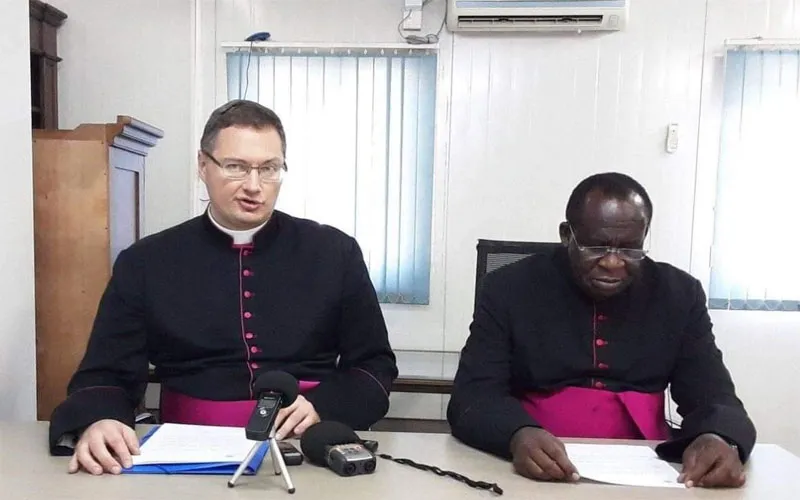Juba, 07 March, 2020 / 1:06 am (ACI Africa).
Pope Francis has reconfirmed his earlier appointment of Bishop Stephen Ameyu of South Sudan’s Torit Diocese as the new Archbishop of the only Metropolitan See in the world’s youngest nation and announced the date of his installation, a move that seems to put an end to controversies around politics of succession in the Archdiocese of Juba.
The Holy Father’s reconfirmation was announced Friday, March 6 at a Press Conference in Juba by Msgr. Visvaldas Kulbokas, Delegate of the Congregation for the Evangelization of Peoples, accompanied by the Chargé d’Affaires of the Apostolic Nunciature in South Sudan, Msgr. Mark Kadima.
“I am here on behalf of the Holy See, being Delegated by the Congregation for the Evangelization of Peoples, acting under the mandate of the Holy Father, to facilitate the preparation and to supervise the installation of His Grace Most Rev. Stephen Ameyu Martin Mulla as the new Archbishop of Juba,” Msgr. Kulbokas told the Press at the South Sudan Apostolic Nunciature.
The Lithuanian Vatican diplomat recalled the earlier Papal transfer of Bishop Ameyu from Torit diocese to Juba Archdiocese and the controversies that followed saying, “As you know, this appointment was made and announced on 12 December 2019, which was then followed by an investigative process concerning some allegations that had been presented by some individuals.”
Following the news about Bishop Ameyu’s appointment to shepherd the people of God in the Archbishop of Juba last December, a series of letters addressed to the Congregation for the Evangelization of People (Propaganda Fide) were written, protesting the elevation of the 56-year-old South Sudanese Prelate.








